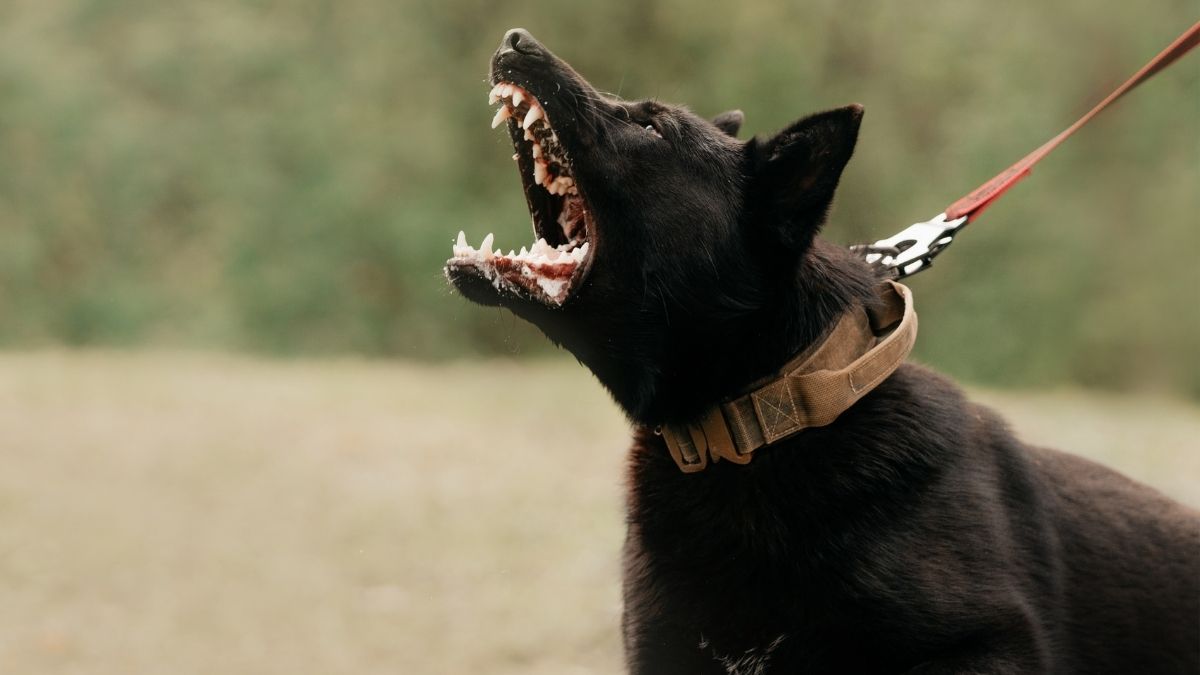How many times has your pup made you think: Why do dogs bark at other dogs?
Being a pet parent to a dog who barks and lunges toward other dogs can be really frustrating.
You are in a constant panic about what people think. You feel greatly embarrassed whenever they break down and you ask yourself: why do dogs bark at each other that way?
Dog trainers refer to this problem as reactivity. It is a well-known dog behavioral problem that can easily be solved.
This article explores everything you should know about why your dog barks at other dogs.
You will also get proven tips on how you can put this unacceptable behavior to a permanent end.
Why Do Dogs Bark At Other Dogs?
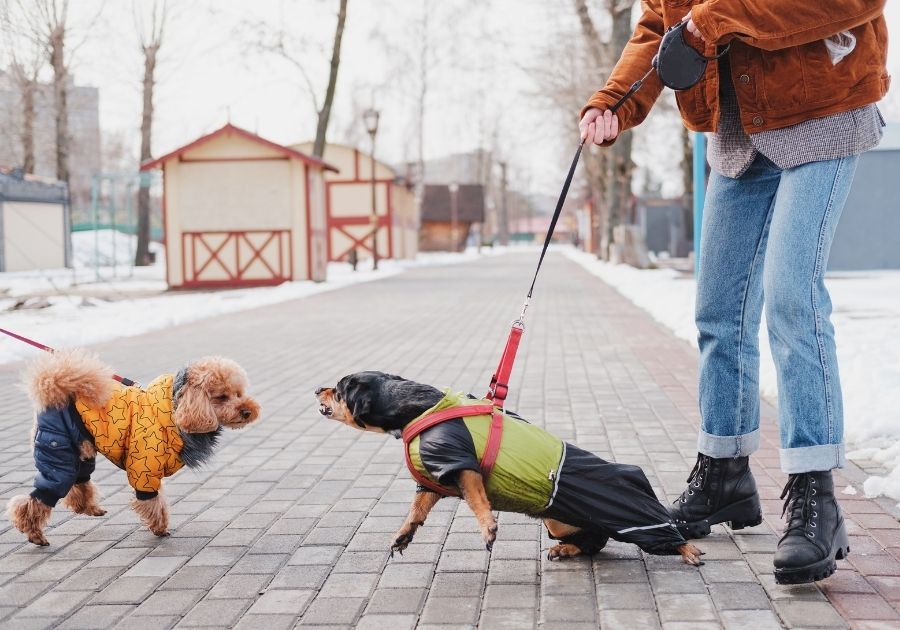
1. Fear
Your dog may be fearful of other dogs as a result of certain unpleasant experiences they encountered as a puppy.
They are also possibly afraid because they had limited interactions with other dogs during puppyhood, so they might be having difficulty socializing.
In reaction to these strange dogs, they bark and lunge at them in order to scare them off or cause them to move away.
A fearful dog will display this behavior whether or not they’re on a leash.
If your dog has a circle of friends that it is comfortable with, it might display signs of fear when they come across other dogs. Making new friends will also be a struggle.
When your pooch is scared and less confident with dogs they’re not familiar with, they prefer to bark.
They do this to scare them away or ignore them completely to avoid an altercation.
Generally, dogs tend to react fearfully to dogs they do not know. They do this for a number of reasons including protecting their owners and marking their territory.
In this case, it’s best to separate your pooch from their trigger and understand what they feel.
They’re not aware of their bad behavior, though, they’re simply trying to keep themselves safe.
2. Excitement
You’re walking through the park with your pooch and it suddenly spots another dog (that it probably sees around sometimes), and then your pup starts to bark.
Your dog barks so excitedly that it starts to lunge forward hoping to escape the leash. This proves unsuccessful, causing it to bark even more.
The other dog seems excited too and is making little attempts at lunging forward.
This may be quite difficult to interpret at first sight but it could mean that your dog is excited about seeing another dog it is familiar with and really wants to play with.
Your pup is barking because it is on a leash and cannot properly communicate his feelings to you.
On the other hand, though, your dog may be barking at another dog due to things like its scent, its pack status, its facial features, and its level of excitement.
Your dog may have had an unpleasant experience with a small black and tan dog and now barks at all black and tan dogs it comes across.
It may also be that your pooch senses how excited the other dog is or how protective it is of its owner and is responding in a similar way.
3. Frustration
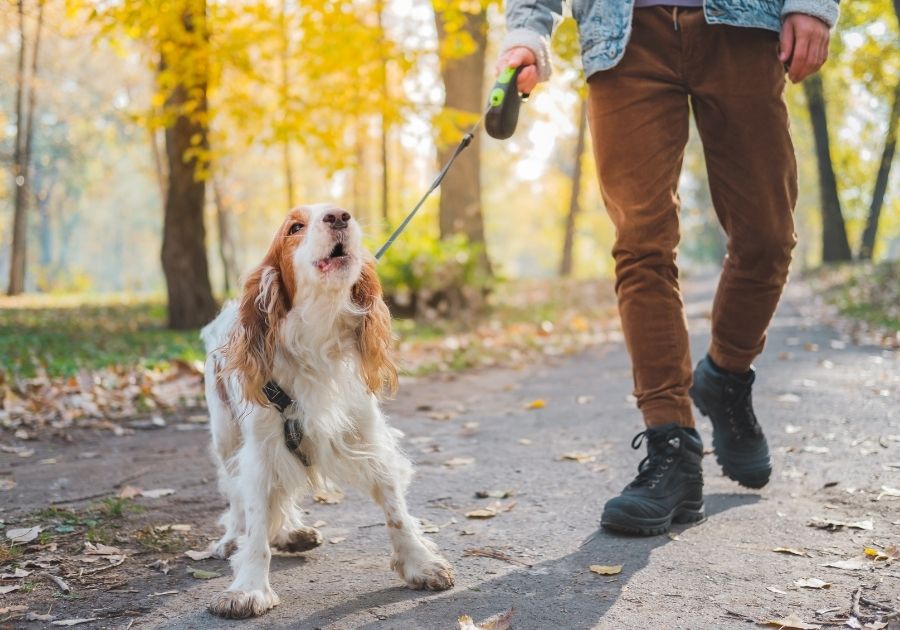
Dogs are known to be playful and cheerful animals. They absolutely enjoy playing with other dogs, whether it’s in a park, a daycare, or even in the neighborhood.
However, it can be really surprising when these same dogs suddenly begin to bark viciously at each other while they walk, as though to tear each other apart.
This behavior is nothing to be afraid of. It simply means that both dogs are frustrated that they are bound by leashes, preventing them from playing with each other.
Your pup repeatedly displays this behavior because it is unable to have as much fun as it wants to when in the midst of other dogs.
Your pooch barks at other dogs because they often get to meet and know every dog they meet, and on this occasion, they are unable to do that.
They bark and try to leave your grip because they’re extremely excited and cannot handle being unable to say hi — they’re desperate to get closer to the other dog.
In dogs, it is a lack of access to things they have an interest in that triggers a frustrating emotion.
4. Anxiety
When dogs bark and lunge at an approaching dog, it doesn’t always mean frustration. Anxiety is another driving force behind negative reactions in your pooch.
If your pup is uncomfortable with something, then being stuck on the leash can drastically increase their anxiety. Their reaction is an attempt to avoid or scare away the trigger.
Of course, you would not want to put your fur baby in a position where they feel they must react this way.
It is important to move with them at a distance that keeps them under their threshold.
By getting too close to the trigger (the other dog) often, you are unintentionally reinforcing this negative behavior.
In the end, you might end up having to go in a completely different direction, otherwise, it might end up a mess.
Your dog thinks that the removal of the trigger is a result of their behavior, so they will do it consistently.
You definitely won’t get a chance to change how they respond to a positive one.
Understanding what your dog is trying to say can sometimes be challenging. For this reason, it is advisable to reach out to a behaviorist for further guidance.
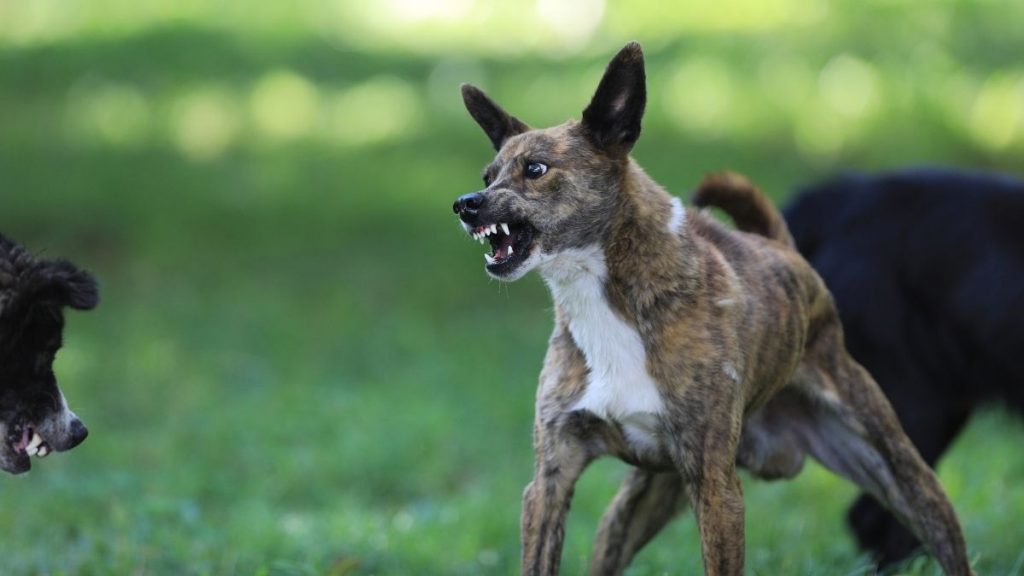
During a puppy’s first year of life, they go through many growth periods where they learn about their environment and how to respond to it.
The first period happens before 8 weeks of age, while the next period, which is one of the most crucial stages, takes place at 18 to 16 weeks of age.
Subsequently, many “fear periods” take place in-between, where a puppy learns what is safe and what isn’t. These very sensitive periods are crucial to the proper development of the puppy.
It is important that they learn about their world and how to socialize with humans as well as other dogs (when it is safe).
Lacking positive interactions with humans and other dogs can cause shyness and an inability to socialize properly.
Certain dogs are somewhat clueless about how to interact and mingle with other dogs. This can cause them to be very nervous around other dogs.
When a poorly socialized dog realizes that being bound by a leash means that they can’t help but interact with other dogs, they are more prone to reactivity.
This makes them bark, lunge, and do all they can to get away from other dogs and not have to deal with them.
Dive Deeper:
How To Socialize An Aggressive Dog (10 Pro Tips)
How Do I Get My Dog To Stop Barking At Other Dogs?
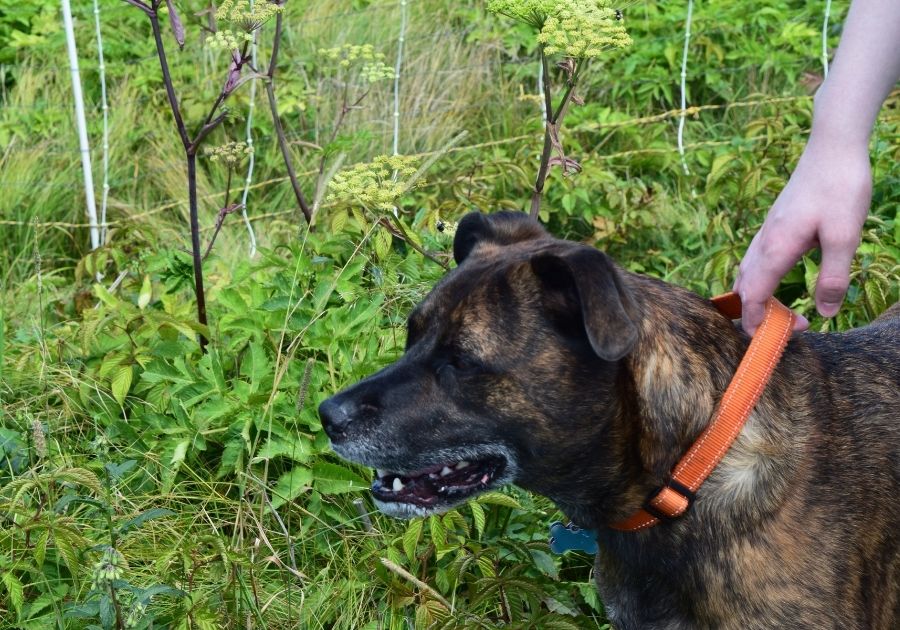
It is advisable to teach your pooch exactly what you want them to do, as opposed to always telling them what you do not want them to do.
This will help them learn faster than simply telling them “no,” since you can give them choices of alternative things to do.
- Take note of your dog’s triggers and how close they have to be before your pooch begins to bark and lunge.
- Teach your pup to pay attention to you and distract it through training.
- Take another route. Instead of forcing your dog to socialize with other pups, walk at quieter times in quieter locations, to avoid an up-close meeting with any dog.
- Licking and chewing are calming exercises for dogs. So, it’s important to provide your pooch with lick-mats and kongs to encourage calm behavior.
- Give your dog treats whenever they are able to look at another dog without barking. This will make the behavior become consistent.
- Avoid excessive exercises like dog daycare and playing with other dogs. Activities of this nature are extremely intense and can make it difficult for your pooch to relax and make the right choices.
Frequently Asked Questions
Why does my dog bark at other dogs
Your dog is likely barking at other dogs due to poor socialization, poor training, and frustrated greeting.
He isn’t sure how to interact with other dogs, isn’t well trained, or is simply trying to say hello.
Do dogs bark because they’re afraid?
Similar to humans, dogs tend to panic when they’re scared or worried. However, when a dog is scared but doesn’t know how to cope with it, he tends to pass his emotions across through barking.
Fear barking is very similar to excitement barking because it is characterized by a high pitch. But the barks often end with a howl.
During fear barking, you will notice your pooch become restless and unable to stop scratching on the door or looking out the window.
Dive Deeper:
Why Do Dogs Bark At Nothing? 5 Reasons & Solution
Conclusion
The next time you think: Why do dogs bark at other dogs? remember that they’re experiencing some serious feelings.
However, they have no intentions of being stubborn or dominant. They don’t really know what their actions entail and are simply trying to calm themselves.
The best thing to do as a pet parent is to take a deep breath and keep them away from their trigger.
Distracting your pup through training also works. You can also work with a skilled behaviorist to teach your pooch better ways to handle and express their emotions.

